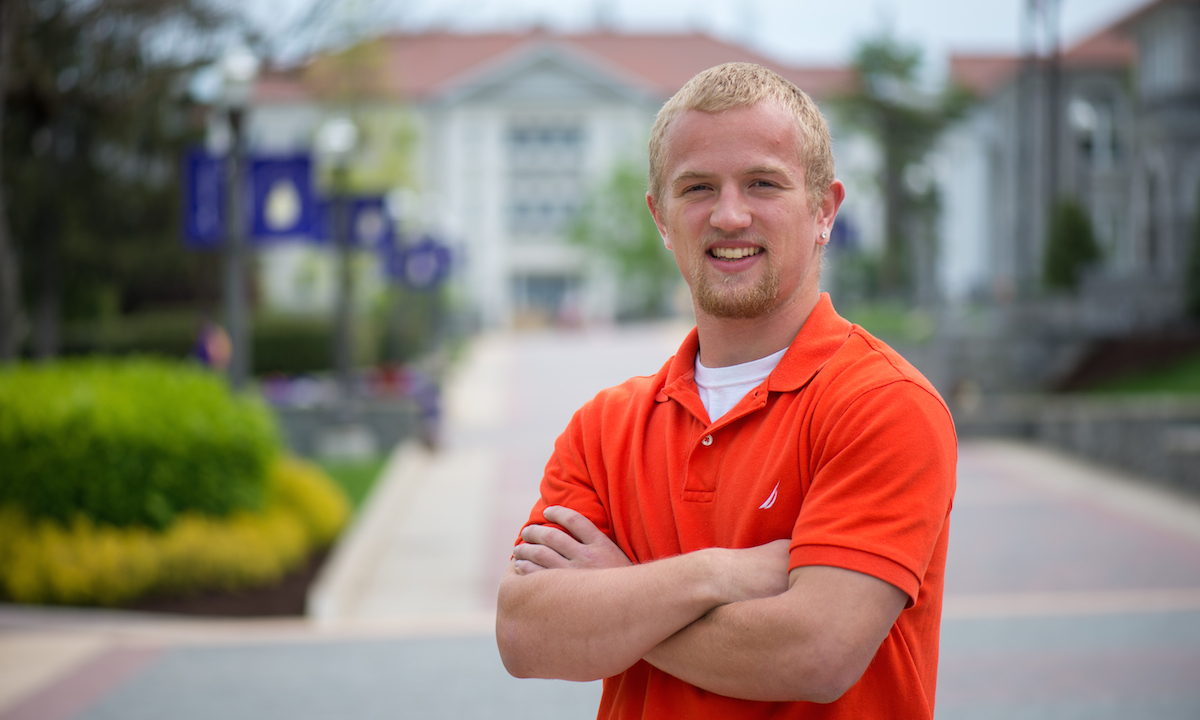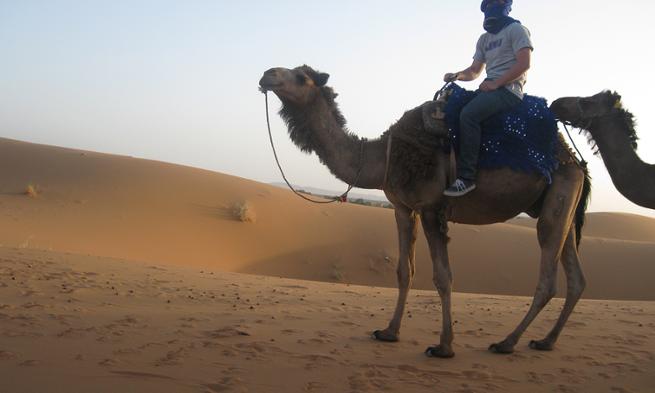Student's interests, studies earn him Critical Language Scholarship
News
As a child, John Wilder lived for a time in East Jerusalem, where one of his best friends was a Palestinian Muslim. Like many young children, Wilder viewed the divided city through the eyes of innocence. “When I would look out the window of our house, sometimes I would see a shepherd on a hill with a flock of sheep. I remember we had a pomegranate tree in our yard.”
'Being immersed in a culture is invaluable to learning a language.'
But events in the West Bank at the dawn of the 21st century were far from innocent. The region was the center of the Second Intifada — the second uprising of Palestinians against Israeli occupation. “When things started to get hotter, my parents did their best to shield me from what was going on. I was told that gunfire was fireworks. When school was canceled, I didn’t know why. Suddenly we couldn’t frequent the same restaurants because of the threat of a suicide bombing, but I was told that we were just trying to eat healthier. … It was much later that I learned the truth.”
If not for that experience, “I’m not sure I would be as interested in the region as I am,” says Wilder, who recently completed his second year at JMU. As a freshman, he declared a major in international affairs, and in the spring he added Arabic to his resume. “Arabic is the language of the region, and I thought it would be something that could really help me, and something I would enjoy.”
The combination of Wilder’s interests and his studies at JMU have earned him a Critical Language Scholarship from the U.S. Department of State to study Arabic at the Arab-American Language Institute in Morocco this summer.
“I’ve always loved learning languages,” Wilder says. In high school in Springfield, Va., he studied Spanish, and he continued with the language during his first year at JMU. Last fall, he took a course in Swahili, and in his spare time he’s learning French.
“Once you become fairly proficient in one language, you start to notice patterns and you can make connections across languages. That’s helped me a lot,” Wilder says. Arabic, however, “is an entirely different system. It’s not easy, but for me it’s made easier by the fact that I enjoy it.”

Wilder is familiar with Morocco, having studied abroad there in the summer of 2013 through a D.C.-based nongovernmental organization. The six-week program included intensive instruction in Arabic, and his host family spoke little English. Nevertheless, Wilder quickly made friends with both his fellow students and some of the local Moroccans, with whom he played soccer in the streets. In the evenings there was plenty of time for cultural activities, and weekends were spent exploring the countryside. On one occasion, Wilder and his friends took a bus to the town of Merzouga on the edge of the Sahara Desert. “We rode camels and spent the night in a tent under the stars. That was an awesome experience.”
'I was able to make dramatic leaps in my proficiency... in an environment where you’re forced to speak the language at all times.'
Being immersed in a culture is invaluable to learning a language, he says. “I was able to make dramatic leaps in my proficiency. … I really enjoy studying Arabic at JMU, but you can’t beat being in an environment where you’re forced to speak the language at all times.”
Wilder applied for the Critical Language Scholarship program in November. “It’s a pretty selective process,” he says, “made more so if you choose to study Chinese or Arabic,” which are highly sought after. Applicants must survive two rounds of cuts. Wilder received word that he had been accepted into the program in February. “I was on my way to a Club Ultimate Frisbee match [at JMU]. I jumped up and my head almost hit the roof of the car.”
He is looking forward to the return trip to Morocco in mid-June and reconnecting with old friends. “I want to take full advantage of the immersion process. When you’re immersed, you really have every available opportunity to succeed.”
Wilder’s end goal is to work in an “international affairs capacity,” possibly with the U.S. Foreign Service or a policy institute.
###
By Jim Heffernan (’96), JMU Public Affairs
June 3, 2014

